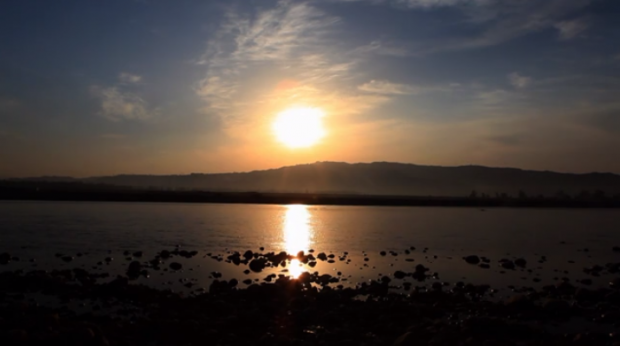
In 1990, about four hundred thousand Kashmiri Pandits were forced to leave their homes in Kashmir, India due to religious persecution. Many displaced families sought shelter in migrant camps, and the film takes place at one of these camps in Jammu. It is 1994 and the story is told through four family members living in the hope of a better tomorrow. The camp scenes are shot in black and white, matching the colorless lives of the displaced population. If life is where the heart is, their hearts are stuck in the past, in the land they left behind but hope to return to someday. The dream sequences in the film are colorful and in stark contrast to the black and white of the camp setting. The music weaves in and out of both worlds, the emotional link between past, present, and hope for the future.
There is an old man on his deathbed being watched over by his wife, son, and daughter-in-law. The dialogue in the movie is scarce, giving more weight to the words that are spoken. The old man keeps repeating, ‘My courtyard, my courtyard’, with an expression of longing and sorrow. His mind is not in the present, but in the past; perhaps remembering his old, proud life in Kashmir, realizing that his hope to return has been in vain. He is going to die in this camp as a person he never wanted to be. When the son tells his wife of another camp with better conditions, her reaction isn’t one of happiness, but of exasperation at another relocation. The migrant identity is hard to adopt, especially if forced. With every move away from the homeland, the identity is spread thinner and thinner.
Facing the old man’s impending death, his wife utters these heart-wrenching lines: ‘My life has become long. Take me with you. Take me with you.’ As she weeps and embraces her husband, it feels like the emotion is enough to break through the black and white of the scene and transform everything into color. But the black and white remains and the lives of the migrants go on.
The last camp was demolished in 2011, but the exiled community is still waiting for favorable political conditions to return to Kashmir.



